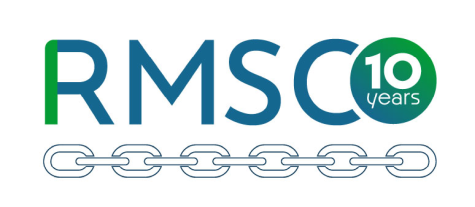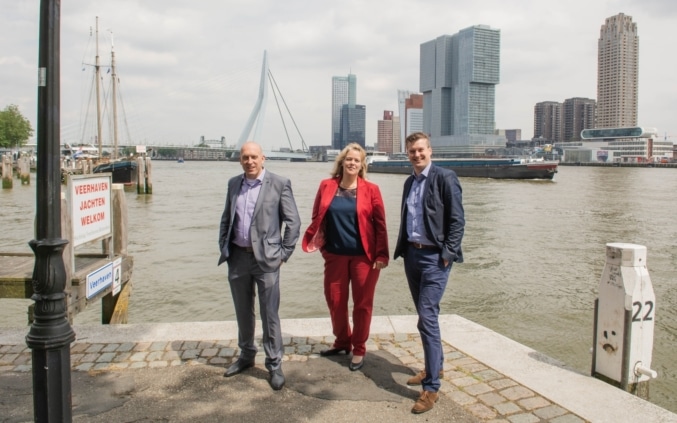Rotterdam Maritime Services Community: past, present and future
Let’s dive into the past, the present and the future of the Rotterdam Maritime Services Community (RMSC). Just prior to this year’s summer holidays, Martijn Troost, Onno de Jong, Linda Treuman and Michiel Spitzer met to talk about the early, pioneering days of the RMSC, about where the community currently stands, and about what the future may hold.
For those who may be unfamiliar with these names, the four individuals in question have all at some stage been responsible for the operational activities of the RMSC, helping the board to maximise the growth and success of the community.
Representing collective interests
Before the kick-off event of the RMSC in 2015, the regional maritime business services industry had already been collaborating informally as a network for several years. A small group of professional business services providers (mainly maritime-related), governmental agencies and knowledge institutions had been carrying out projects that helped consolidate Rotterdam as a leading maritime business centre.
Martijn Troost: “Spurred on by the Port Vision 2030, the City of Rotterdam had been looking for additional insights into the types of maritime businesses that were locating in Rotterdam and, more relevant, what type of businesses that were key to economic policy making.” The research carried out produced a clear picture of the situation: “One of the outcomes,” Troost adds, “was that we learned about the role and the importance of maritime business services for the success of the entire maritime cluster. Even more interesting was the finding that sound business services would lead to high-quality economic activity in a broader sense.”
These two factors prompted the idea of activating the industry to organise itself more effectively. A next step involved bouncing this idea off industry players, which led to wider support, especially when it came to the collective interests of Rotterdam-based maritime business service providers being represented. Furthermore, the expectation was that a formal trade association would create openings for increased exposure and consolidate the network even further. As a result, the RMSC was established as part of a robust public-private partnership.
“We got off to a flying start,” Troost explains, “not least because of the contributions of our founding members. Membership numbers started with eleven and the rest of the year showed steady growth.” In the early stages the RMSC organised various so-called ‘trend’ sessions. These were organised to gain a more in-depth knowledge of where and how the RMSC could (or should) make a difference, as well as providing an opportunity for increasing awareness and networking.
Establishing legitimacy
When Martijn Troost switched jobs to the City of Rotterdam in April 2016, Onno de Jong of Erasmus UPT was asked to step in. “Through my position at Erasmus UPT I was involved in various studies that were being conducted for the RMSC.” This transition also ushered in a new phase. De Jong explains: “Once the first pioneering phase of the venture was over, the board and I set about establishing the legitimacy of the RMSC. Our aim was to professionalise the organisation and ensure that the RMSC was able to stand on its own two feet.”
Michiel Spitzer: “To increase the online visibility and added value for members, we developed a new website, aimed at generating exposure for members, for the RMSC itself and for the regional cluster of maritime business services.” This included a membership directory to showcase the huge diversity within the industry. It is interesting to note that the directory has been attracting substantial online traffic and continues to do so today. In addition, extra efforts were made to create and disseminate information to increase the awareness of maritime business services among relevant stakeholders.
“At the same time Young RMSC was formed,” De Jong continues. “This provided an effective platform for involving and activating young professionals within our community. The RMSC has always been about encouraging the active participation of its members.” The ‘Anatomy of Shipping and Transport’ course that was developed in collaboration with the STC Group is a good example of this approach. The RMSC network has also made earnest endeavours to attract relevant (international) conferences and institutions to Rotterdam, such as the VNAB and Mare Forum. The community soon grew to around 40 members, with extra efforts being made to focus attention on these.
High-quality knowledge events
When Onno changed careers and stepped down in early 2018,Linda Treuman became the new manager of the RMSC. Her role at the STC Group meant that she was already familiar with the RMSC, having even helped organise some of the trend sessions. Due to a number of market consolidations that were taking place however, she was immediately confronted a declining membership with several members departing the community.
“Furthermore,”Treuman adds , “in some cases membership was tied to one person, which meant when they left the organisation, others were not always aware of the added value of membership.” This problem was quickly solved by boosting publicity and homing in on the added value and the role of the RMSC in the wider community. “We put a lot of effort into connecting the local network though high-quality events. As well as increasing the number of events itself and teaming up with other trade associations on relevant topics. The combination of knowledge-sharing and informal networking proved exceptionally valuable.”
The upshot of all this was a growing number of events and a PR push to explain what the RMSC was all about. Michiel Spitzer: “Apart from throwing the spotlight on the RMSC and the industry, we also improved membership exposure. Background interviews with members are another much appreciated and effective aspect. Sharing individual membership profiles via dedicated weekly LinkedIn posts also creates a positive buzz.”
Linda continues: “I am proud to have contributed with the growth of the RMSC, over the years we have managed to acquire another 20 members. What’s more, we’ve been able to strengthen our contacts with related trade associations, relevant knowledge institutions and government agencies.” With the support of our members, and the board of course, the RMSC has transformed itself into a professional and well-respected trade association.” The RMSC currently has 52 members.
The shift to online events during the COVID-19 lockdown went surprisingly smoothly. Treuman: “Even though it was all new to us and at times felt awkward, the mood and interaction during webinars were just as informative, enthusiastic and almost as personal as usual. Fortunately we did not lose any members, what proves to me that our members value the membership.”
Future vision
“Close to celebrating our seventh anniversary”, Treuman continues, “we can say that we have fulfilled our ambition of putting our regional cluster of maritime business services more effectively on the international map.” De Jong: “The trend towards digitalisation, for instance, has led to increasingly specialised business services, especially in such a complex and fast-moving industry as ours. I believe there are major gains to be made in this area and a role for the RMSC to play in connecting the supply and demand sides.”
According to Treuman it is expected that the RMSC member base has room to expand beyond the Rotterdam region. Business services providers from Den Haag, Sliedrecht and Amsterdam have already joined the community for example.
Maritime business services providers occupy a strategic position pretty much across the entire value chain. For example, they have a hands-on knowledge of up-and-coming trends and are able to respond to these developments by innovating new or improved services, which in turn generate increased gains for their clients. This is especially relevant in respect of game-changing trends, such as digitalisation, the energy transition and autonomous shipping.
Troost concurs with Treuman’s assertion that the RMSC can help maximise opportunities by connecting the port, the city and maritime business services. “The latter plays an important role in bringing the various parties together and can really facilitate innovation. I believe they are a driving force within the industry. Personally I believe that the RMSC can play a key role in identifying relevant preconditions for success, as well as help lawmakers fine-tune the rules and regulations so that the position of the regional maritime cluster can be secured and improved upon.”
With Linda as manager, supporters like Martijn, communicators such as Michiel and members like Onno who are always committed to exchange knowledge and ideas, the RMSC is ready for the next phase in growth.
Martijn Troost was responsible for the founding of the RMSC on behalf of the City of Rotterdam in 2014, and became RMSC’s first manager. Onno de Jong took over this role in 2016 while working with Erasmus UPT. Early in 2018 Linda Treuman became the operational driving force, whilst Michiel Spitzer (Sharper PR + Communicatie) has been responsible for communications and PR for RMSC from the very start.





